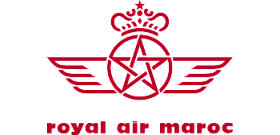 NCAA Demands Immediate Action as Baggage Issues Persist with Royal Air Maroc in Nigeria
NCAA Demands Immediate Action as Baggage Issues Persist with Royal Air Maroc in Nigeria
The Nigeria Civil Aviation Authority (NCAA) has put renewed pressure on Royal Air Maroc (RAM), one of Africa’s prominent flag carriers, to urgently address ongoing baggage mishandling issues that have drawn widespread complaints from Nigerian passengers. Although the Moroccan airline recently settled a substantial penalty for previous infractions, the regulator warns that persistent shortcomings in baggage management could lead to even harsher consequences in the near future.
Earlier this year, RAM was identified as the worst-performing foreign airline in Nigeria regarding baggage delivery, facing the largest-ever consumer protection fine levied by the NCAA. The sanction followed repeated reports of short-landed baggage—where checked luggage arrives days after passengers—and a disturbing pattern of poor communication with affected travelers. These operational failures have not only caused frustration for customers but have also risked undermining trust in international air travel within Nigeria’s growing aviation sector.
In the months since the fine was paid, RAM has made some visible efforts to improve its engagement with disgruntled passengers. However, the NCAA recently confirmed that baggage-related complaints remain a significant concern, suggesting that deeper systemic problems have yet to be resolved. During a virtual meeting aimed at uncovering the root causes behind these lapses, the regulator emphasized that ongoing tolerance for such disruptions is rapidly diminishing.
“Business dictates a change of strategy when current methods are not delivering results,” the NCAA advised, urging the airline to immediately rethink its approach to baggage handling and customer service if it wishes to preserve credibility among Nigerian travelers. The Authority’s message was clear: the era of leniency is coming to an end, and airlines that fail to meet basic service standards will face escalating penalties.
For Royal Air Maroc, the warning could not be more timely. Nigeria represents a key market in West Africa, with a vibrant population, strong business travel, and a steadily increasing appetite for international tourism. Consistent baggage issues risk damaging the airline’s reputation and could push customers toward alternative carriers, both African and international, that are perceived as more reliable and responsive.
The NCAA’s intervention is part of a broader push to restore passenger confidence in Nigeria’s aviation sector. With air travel rebounding after years of global disruption, regulators are under pressure to ensure that both foreign and domestic airlines uphold the highest standards of fairness, transparency, and operational efficiency. By holding carriers accountable for service failures, the NCAA aims to create a more competitive environment that ultimately benefits African travelers and the travel industry at large.
For the travel trade in sub-Saharan Africa, these developments serve as a crucial reminder of the importance of robust consumer protection frameworks. Nigerian holidaymakers and business travelers expect not only safe and comfortable journeys but also efficient baggage delivery and responsive customer care when problems arise. The willingness of the NCAA to impose—and enforce—significant fines demonstrates an increasing resolve among African regulators to safeguard the interests of passengers and to demand higher standards from international partners operating on the continent.
Industry analysts note that recurring baggage mishandling is not just an inconvenience; it can have far-reaching implications for the perception of African airports and airlines. For travel professionals, the reliability of partners like Royal Air Maroc is a key factor in recommending routes and building customer loyalty. As travelers become more discerning and competition between airlines intensifies, carriers that fail to invest in effective baggage management risk losing market share to rivals who better prioritize the passenger experience.
The NCAA’s stance is also a signal to other airlines operating in Nigeria and beyond. The regulator’s determination to enforce passenger rights and ensure seamless travel experiences is not limited to one carrier. By setting a public example with RAM, the NCAA is sending a message across the industry: repeated lapses will no longer be tolerated, and only those who continuously improve will thrive in Africa’s fast-evolving aviation landscape.
Looking to the future, the dynamic between regulators and airlines is likely to become more collaborative but also more demanding. As passenger numbers rise and expectations shift, African authorities are being called upon to modernize oversight and adopt best practices from global aviation hubs. For airlines, this means investing in new technologies, staff training, and communication systems to swiftly resolve issues and maintain customer trust.
Ultimately, the outcome of this ongoing challenge with Royal Air Maroc will be closely watched by travel professionals across Africa. The ability of airlines to rise to the occasion and adapt to stricter regulatory scrutiny will set the tone for industry standards in the region. With the NCAA taking a firm stance, passengers and the wider travel community can expect a renewed focus on quality, accountability, and the seamless experiences that underpin the continent’s aviation future.
